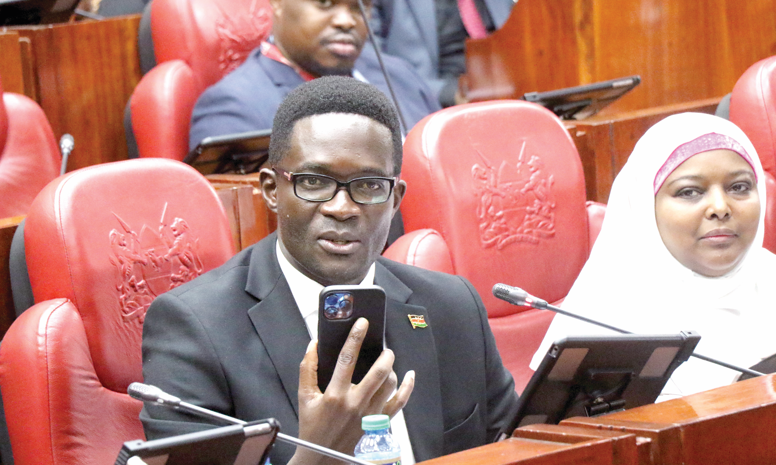Worldcoin iris scans ‘victims’ report eye problems, MP says

Some of the people whose irises were scanned to collect data by an American firm are experiencing optical problems, a parliamentary committee heard yesterday.
Kisumu East MP Shakir Shabir claimed five people who were scanned had reported eye problems which they blamed on the scanning.
Health Cabinet Secretary Susan Nakhumicha said she could not ignore the claims since the ministry was not aware of the devices used to scan the irises.
“The company in question did not report the device as medical equipment. With this in consideration I cannot rule out the claims of a health problem,” Nakhumicha told the National Assembly’s Ad Hoc committee investigating Worldcoin activities.
More than 350,000 Kenyans had their irises scanned by the American data firm before the government stopped the exercise.
Nakhumicha asked people who were scanned and are experiencing eye problems to report to the nearest health facility for check up.
“There is a likelihood of a medical concern considering people were being exposed to excessive light which is not advisable. Prolonged exposure can be dangerous,” said Dr George Nyagama.
Legal loopholes
Earlier Communication Authority Director General Ezra Chiloba told the committee that omissions by regulatory authorities coupled with the lack of a coordinated approach to reign in on Tools for Humanity, the parent firm for Worldcoin, was to blame for exposing Kenyans to data exploitation.
Chiloba told the committee that overlapping regulatory mandates among agencies hindered a coordinated response.
He added that while the Office of Data Commissioner is mandated to ensure data privacy protection, legal loopholes may have impeded the enforcement of consumer protection. “I believe that the regulator did its part in terms of operationalization and I think the Data Commissioner did the best and if the are lapses, they should be fixed from a legal perspective,” Chiloba said.
On Wednesday Attorney General Justin Muturi told MPs that the Office of Data Protection, which is led by Commissioner Immaculate Kassait, was to blame for irregularly licensing Worldcoin.
According to Muturi the current legal framework is not up-to-date and in tandem with technological dynamics and innovations.
“The issue we are handling are novel if you look at our legal framework it’s not adequate to address the issue. When we were setting the Data Protection Act, did we anticipate we would be confronted with this type of invention? Not all,” he said.
The Office of the Data Protection Commissioner issued Tools for Humanity the license to operate in the country as a data processor.
Worldcoin then began data processing activities of iris data via an orb scanner. Users were issued with free Worldcoin tokens estimated to be worth Sh7,000 in July.
“When you don’t explain what you are doing you leave room for many explanations and that is a risk. That’s why regulators have to step in and try as much as possible to protect ordinary citizens from a sophisticated process,” Chiloba said.
“From a business perspective, the intention was good for them but the fact that they didn’t carry all actors along,” Chiloba added.
He pointed out that the induced consent where participants were given free cryptocurrency was an indication that the consent wasn’t from an informed point of view on the risks and the benefits.
Concerns over the transparency of Worldcoin operations have been raised in France, India, Germany, the UK and other countries.
Worldcoin offered those who signed up 25 free tokens drawing thousands of people to multiple sign-up points in Nairobi.
Thousands of Kenyans flocked Kenyatta International Convention Centre (KICC) mid-July to have their eyes scanned.
The project, according to its founders, aims to solve one of the main challenges facing the crypto industry that largely relies on pseudonyms to operate, leaving it vulnerable to spam bots and scams.











